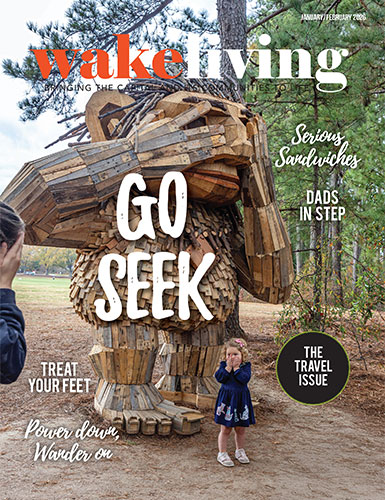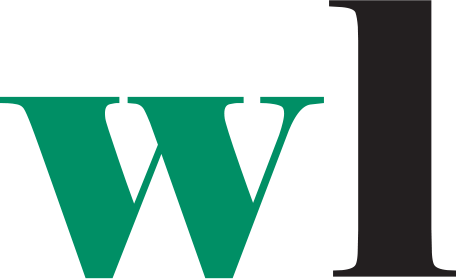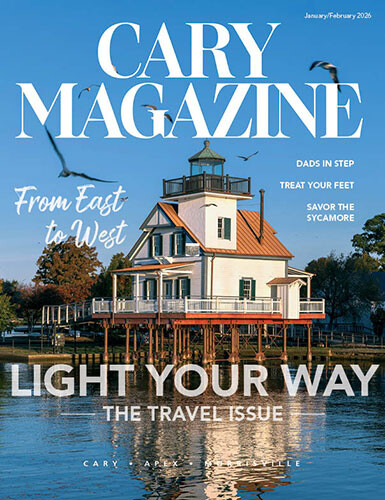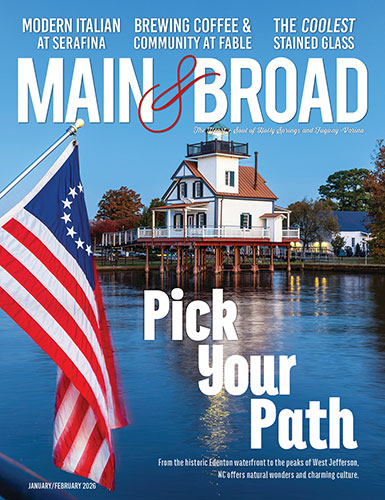Art was always a sanctuary for Adriana Ameigh, but it took time for it to become her profession.
Ameigh began her career in finance and says while the work was interesting and challenging, it was perhaps not her calling. When her mom passed away, she began to think about what would bring her happiness and purpose, while also adding something to the world.
“I knew that was art,” Ameigh said. “But could I make money at it? Would anybody even like it?”
Not one to leap without looking, Ameigh began talking to artists about the logistics of their careers, including artists housed at Artspace visual arts center in downtown Raleigh.
She took the plunge in 2019, and while the shutdowns during the pandemic caused some bumps in the road, today she works as a professional artist, creating and displaying her work in an Artspace studio.
Ameigh’s story is one of dozens within Artspace, which aims to provide a collaborative environment where artists can ask questions of each other, share ideas and supplies, and invite critiques of each other’s work.
Artspace dates back to 1986, before downtown Raleigh underwent a major revitalization. The founders of Artspace envisioned creating an arts district to breathe life into the area and offer affordable studio spaces for artists, says David Moore, director of community engagement at Artspace. In the almost four decades since, Artspace continues to provide subsidized studio spaces to artists, who pay half the market rate for rent.
“The goal is to make sure we have local artists working in the heart of the city,” Moore said.
The nonprofit does that and so much more.
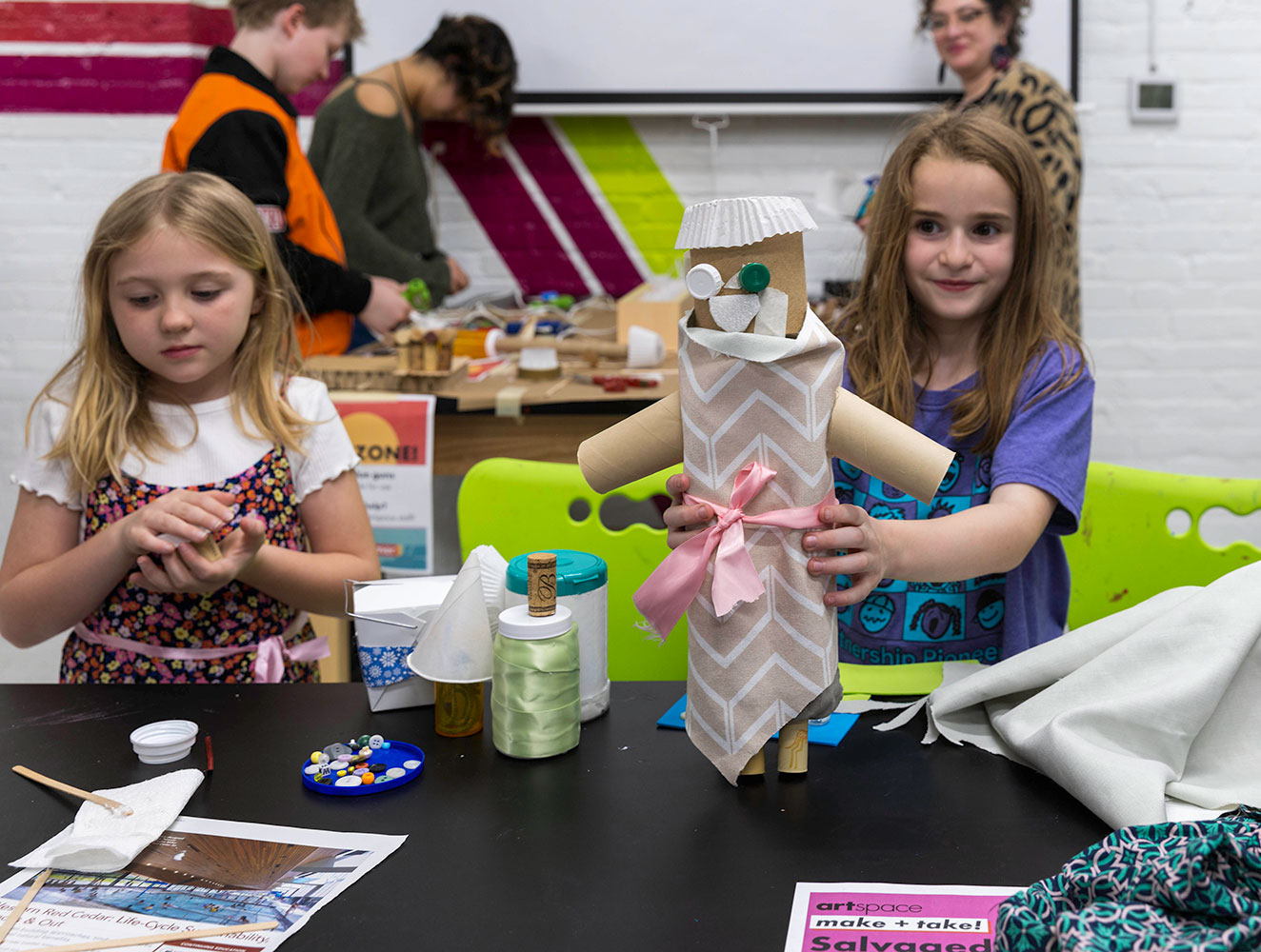
Artists of all ages participate in free hands-on art activities on the first Friday of every month at Artspace’s Open Studio. Art classes are also offered throughout the month.
Admission to Artspace remains free to the public. It’s grown to include classes, camps for children, community programs, and offsite education, Moore said. Its latest addition, Artspace on the Go, comes in the form of a wrapped van that visits underserved communities, bringing art and artists to schools and other community spaces, Moore said.
Artspace has a thriving residency program as well, providing free studio space and additional financial support to five artists to grow their craft, Moore says. Several of these residencies help ensure access to underrepresented groups, with one supporting an artist identifying as having a disability and another supporting a recent graduate from historically Black colleges and universities.
The residencies are one reflection of Artspace’s commitment to diversity, equity, and inclusion, and its staff is another. In 2020 and 2021, as so many organizations went through changes related to the effects of the pandemic, Artspace ushered in a mostly new leadership team, which Moore is proud to say “reflects the colorfulness of Raleigh.”
Artspace reaches Raleigh and beyond, with nearly 22,000 visitors in 2023 to 29 exhibitions. More than 850 children attended Artspace summer camps last year, and all the programs were supported by 4,650 volunteer hours, according to Moore.
Financial support is as crucial as volunteer hours, of course. Moore said funding to operate the facility and support artists and programs comes through a variety of sources.
Artspace receives funding from the City of Raleigh Arts Commission, the North Carolina Arts Council, and the United Arts Council of Raleigh and Wake County. Donations from private foundations and individual donors are important as well, Moore said.
The organization also generates income in a number of creative ways, from leasing space to a restaurant also located in the building, to leasing and selling artwork that might end up on display in the offices of a local company, for example, Moore said. Another example: Artspace has helped developers connect with artists if the developer wants to commission a mural on a new building.
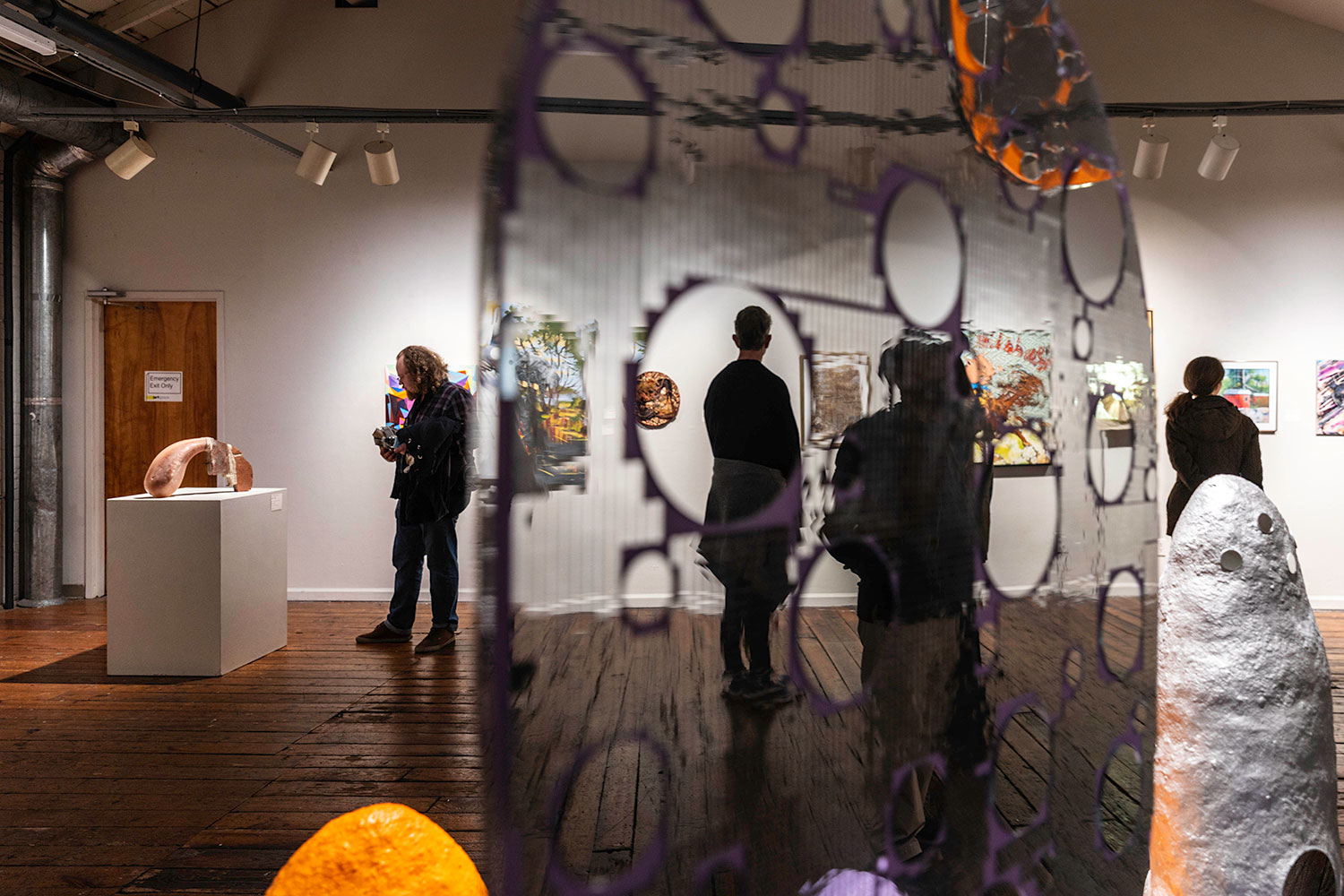
First Friday art lovers enjoy a wide variety of art mediums at Artspace Teaching Artist Showcase in Gallery 2.
“We do economic development in our own way,” Moore said. “We’re supporting the creative economy in all the things that we do.”
It’s about support for the artists as well. Ameigh talks with enthusiasm about the power of being in a shared space with other artists.
“We support each other,” she said. “We can give advice to each other. We’ll often ask for a second set of eyes on a painting or project. That’s huge. If I was at home that would be so much harder, but here I just walk down the hallway.”
She’s paying it forward now by co-hosting the Level Up Artists podcast, offering advice on topics she wondered about in her early days, such as how to price art.
“It’s about community over competition,” Ameigh said. “We want to share forward any knowledge we’ve learned in our journeys.”
That community ethos has made Artspace a place where diverse artists and observers alike feel represented.
“People walk in and feel free,” Moore says. “They feel creativity in the air. They feel a nonjudgmental space.
“People see themselves in the artwork on the wall, and in the artists.”
- Garden Adventurer: Landscaping with Spiders
- Out & About in Wake County: May/June 2024
- Pursuing Greatness
- Splash Into Summer
- Go Big
- Lightship Neon
- Pay it Forward: Artspace
- Erica Chats: Spring into Summer Fashion
- Celebrated Spirits: SHIfT NEIPA
- Celebrated Spirits: Hummingbird
- Your Perfect Wake Picnic
- The Making of a Fashion Designer
